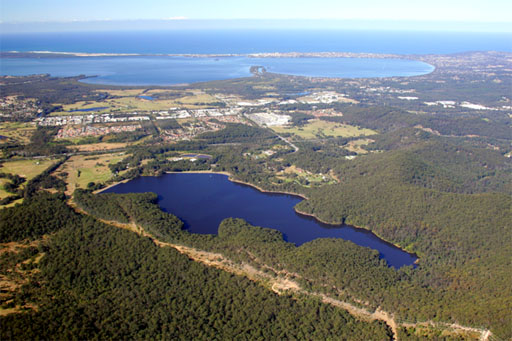A consultant’s report predicts Central Coast Council is well on the way to receiving good news from the Independent Pricing and Regulatory Tribunal IPART.
Council has asked for a 34 per cent increase of what it can charge for water, sewerage and drainage.
“Early indications from IPART are that higher prices will be approved,” the consultant company Kellogg, Brown and Root (KBR) said.
KBR conducted a structural review of Council’s water and sewer authority (WSA) and it is being tabled at the Council-under-administration meeting of February 22.
While the report predicted the 34 per cent rate rise will be approved, it also said the business needs cultural and process change with a renewed focus on prudent and efficient spending.
The report presented three options, recommending the best option was to remove the business from the constraints of the Local Government Act (LG Act) and to corporatise it.
“The Council’s water business is the largest non-corporatised water and sewer service provider in NSW,” the report said.
“Corporate governance and maturity are increasingly required for a business of this size.”
The report said the key benefits of corporatisation would include: the corporation would no longer be constrained by the LG Act; a board would manage the business in accordance with appropriate oversight under the Corporations Act; and the corporation will focus on its customers and attract and retain the best staff.
Central Coast Council is governed by both the Local Government Act and, as a substantial water supply authority, the NSW Water Management Act.
Another option was to remove the business from the Water Management Act.
The report said Central Coast was the only council subject to both Acts, creating a needlessly complex and restrictive regulatory environment.
“In particular, the LG Act imposes restrictions on the operation of its water business other water businesses do not face (e.g. ‘restriction of reserves’),” the report said.
“Moreover, the Water Management Act also imposes economic regulation, a burden other council water businesses do not experience.
“The NSW Government should remove one of these regulatory burdens if it wishes the ratepayers of the Central Coast to benefit from an innovative, prudent and efficient water business.
“This regulatory environment severely restricts the options available to the Central Coast Council to allocate its cash reserves to capital expenditure upgrades that are most needed.
“Dual regulation also restricts the Council in its endeavours to repay debt accrued in its restricted funds.
“If the Council’s water business were to be treated like other economically regulated water businesses, it could sensibly allocate capital to prioritised areas of need and repay debt.
“This dual restriction makes it difficult for the Council to manage its restricted water fund loan, while surplus cash in the restricted wastewater fund is unable to be allocated to debt retirement,” the report said.
A third option was to amend the Local Government Act so the Council water business could spend funds raised for either water supply or sewerage services as it saw fit, without restriction.
KBR summarised the water business problems as an organisation that had grown rapidly, not been embedded in the amalgamation with process and management yet to catch up.
It said it needed to increase operational performance and efficiency through improved processes, systems and training for management and staff.
It added that the cost of each activity was not known by the responsible manager.
“Central Coast Council needs to reform its budgeting and financial reporting systems to ensure that, not only is it aware of what is happening, but that the community also has a transparent view of the Council’s financial position,” KBR said.
“Relative to 2019 pricing process, there was a need to increase resources for preparation of the IPART submission.
“This was done.
“Early indications from IPART are that higher prices will be approved.
“However, without cultural and process change, the business may revert to its previous approach.
“There needs to be renewed focus on prudent and efficient spending that is reflected in business cases for operating and capital expenditure.
“Business cases need to embed the IPART regulatory drivers so that customer value is a core of the business.’’
Central Coast Council’s pricing submission for IPART’s final determination was lodged on September 4, 2021.
IPART will release a draft report seeking further community feedback in March 2022.
The resulting determination will set prices for water, wastewater and stormwater drainage services from 2023 to 2026.
The previous IPART determination in 2019 set lower prices for the period 2020 to 2022, reducing Council’s revenue by about $39M per year.
The consultants noted that the WSA spent more than the IPART revenue allowance in that period.
“Overall, the WSA has generated a loss for the Council.
“By contrast, other separate water entities in other jurisdictions are profitable, with very different financial metrics.”
The report goes to the meeting with a recommendation for Council to undertake a more detailed analysis and assessment on each of the options and provide a future report to Council.
Merilyn Vale


